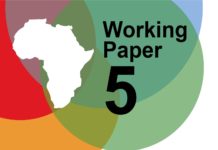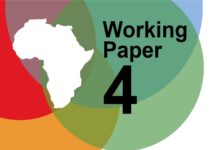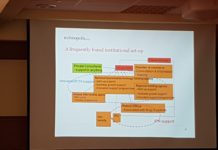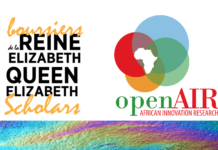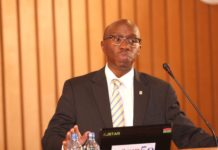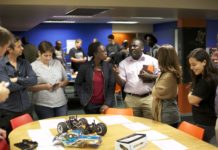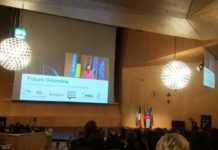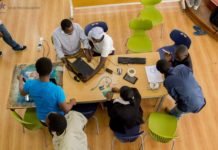Intellectual Property Rights and Innovation: Assessing Regional Integration in Africa (ARIA VIII)
To assist trade policymakers in the development of a framework, this paper explores IP issues, perspectives, and priorities related to both the CFTA and PAIPO. It suggests that process and substance issues are each important to create fair and balanced IP systems on the continent that stimulate innovation, growth, and competition.
The Intellectual Property Treaty Landscape in Africa, 1885 to 2015
This paper maps the 130-year history of the IP treaty landscape governing the protection of, and access to, knowledge in Africa.
Three Centuries and Counting: The Emergence and Development of Intellectual Property Law in Africa
Authored by: Caroline Ncube. This chapter provides an historical account of the development of IP on the African continent which highlights how the introduction of IP systems and their transposed legislation displaced existing knowledge governance systems and entrenched a primarily extractor-biased IP system.
Common Misconceptions of Patents in Egypt
Earlier this year, the World Intellectual Property Organization (WIPO) held a two-day workshop on “Supporting Small and Medium-Sized Enterprises Use the Intellectual Property System in Their Competitive Strategy” at the Academy of Scientific Research and Technology in Cairo, Egypt, which some of our Open AIR NERG members attended. The goal of this meeting was to discuss how to encourage young innovators to protect their inventions by patenting them at the Egyptian Patent Office. The workshop had vibrant and sometimes heated discussions between these innovators and government officials regarding many of the obstacles faced in the patenting process in Egypt.
New Funding for Research on African Innovation and Gender
The Open AIR network has received funding from the Canadian Queen Elizabeth II Diamond Jubilee Advanced Scholars Program (QES) to create new opportunities for emerging scholars to explore African innovation through the lens of gender equality and the empowerment of women and girls.
Open AIR East Africa Distinguished Speaker Series: Dr. Henry Mutai on IP, Trade and...
On 10 June 2015, the Agreement establishing a Tripartite Free Trade Area (TFTA) was signed in Egypt bringing together 26 African countries from three major regional blocs: the Common Market for Eastern and Southern Africa (COMESA), the East African Community (EAC), and the Southern African Development Community (SADC). Following the signing, the current phase of the TFTA negotiations are meant to cover five agenda items: trade in services, cooperation in trade and development, competition policy, intellectual property (IP) rights, and cross-border investment. The fourth of those five issues was the subject of the second Open AIR East Africa Distinguished Speaker Series presentation by Dr. Henry Kibet Mutai.
Open AIR hosts South African Maker Movement Workshop
Enthusiasts and researchers gathered on Friday, March 3, 2017 to share research on the growing African maker movement. The workshop was hosted at the Institute for Economic Research on Innovation at the Tshwane University of Technology in Pretoria, South Africa.
WIPO 33rd IGC Session Puts Traditional Cultural Expressions (TCEs) on the Spotlight
The WIPO-IGC recently commenced the next installment of its deliberations for a text-based instrument that focuses on the protection of traditional cultural expressions (TCEs), pursuant to its mandate. There are two scheduled forums on TCEs beginning Feb 27-March 3 and to be completed in June 2017, which will round off the Committee’s work for the 2016-17 biennium.
A New Look at High Tech Hubs in the ‘Digital Savannah’: Part 1
This is the first in a series of blog posts highlighting Open AIR’s latest working paper, A Framework for Assessing Technology Hubs in Africa, which will soon be published in the New York University Journal of Intellectual Property and Entertainment Law. This is the first paper to offer a framework for systematically describing and assessing the emergence of high technology hubs throughout Africa.
Skills Development and Innovation at Suame Magazine, Ghana
Funded by the Open AIR network, my case study is about skills development and innovation at Ghana’s Suame Magazine Industrial Cluster. The research I am conducting seeks to understand the processes and systems that contribute to how knowledge is or is not shared and how skills are acquired in one of West Africa’s largest informal sector industrial clusters, Suame Magazine. How skills are learned and what is communicated between those in the industrial cluster will help us to learn how innovations are shared and taught among these informal businesses.

